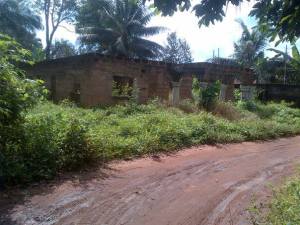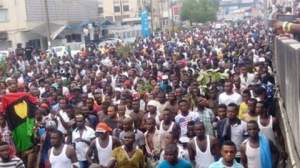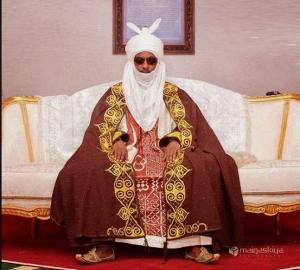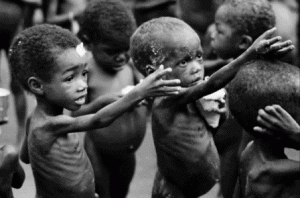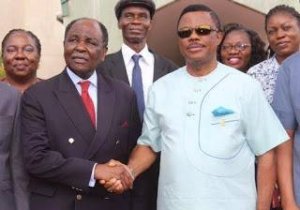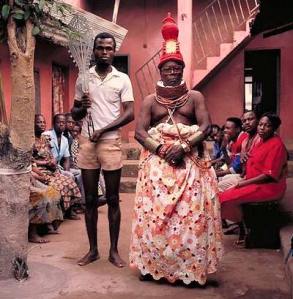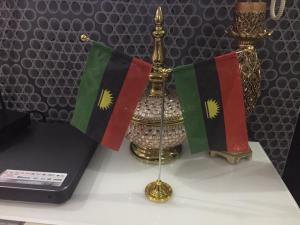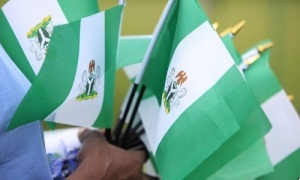Nnewi is the second largest city in Anambra State in southeastern Nigeria. Nnewi as a metropolitan city encompasses 4 local government areas, Nnewi North, Nnewi South, Ekwusigo and Ihiala Local Government; Nnewi North is commonly referred to as Nnewi central, and comprises four autonomous quarters: Otolo, Uruagu, Umudim, and Nnewichi. Nnewi North also includes Ichi, an autonomous neighbouring town. The first indigenous car manufacturing plant in Nigeria is located in the city while the first wholly made-in-Nigeria motorcycle, the ‘NASENI M1’ was manufactured in Nnewi.
As of 2006, Nnewi has an estimated population of 391,227 according to the Nigerian census. The city spans over 1,076.9 square miles (2,789 km2) in Anambra State. Nnewi Metropolitan Area and its satellite towns is home to nearly 2.5 million residents As of 2005. Dimensionally, Nnewi has an edge over all other units, being recognized by the 1953 census figures as the largest inland town of all others in the Eastern states of Nigeria.
History
In Nnewi oral history and mythology, the ‘ewi’ (Igbo: bush rat) played a great role in saving the founders of Nnewi during wars. Throughout its history, Nnewi has used its military might to maintain its borders and because of this, the killing or eating of ewi in Nnewi is forbidden to the present day. Nnewi existed as an independent kingdom from the 15th century to 1904, when British colonial administration occupied the kingdom.
Nnewi kingdom was founded on four quarters (large villages), namely Otolo, Uruagu, Umudim, and Nnewichi. Each village was divided into family units called ‘umunna’. Each umunna had a first family known as the ‘obi’.
These four quarters were these original names of the Sons of Edo: Otolo being the eldest and Nnewichi being the youngest of the sons Obi of Nnewi
The Place of Nnewi in Igbo History
Originally when the Igbos or Ibos settled in the present day Eastern Nigeria, they arrived with three leader two were spiritual leaders and the youngest of the three a hereditary King known as Obi a King by birthright. The first was the Eze Nri of Awka a Priest King, the second the Eze Aro of Arochukwu a Priest King and the third the Obi of Nnewi a political and war ruler. The Obi Nnewi enthroned the Obi of Onitsha as an Obi an upgrade from is former title Eze of Onitsha in the 1740s. The Obi of Onitsha was well qualified to become an Obi being disputably the first among the two sons of the Oba of Benin. The Onitsha people are visitors and later settlers in Igbo land. The Aros know this history (Nnewi being a relation and a leader among the Igbos) and this part of the reason there are no Aro settlements in Nnewi. The Obi of Nnewi Obi Okoli in1780s lost his stool when inside palace politics that hinged on tradition edged him out. Traditional royal law had it that the Crown Prince must perform the funeral rights of the late Obi before he can be crowned, Obi Okoli was absent and arrived home only after the late Obi Okoli 1st was buried. His Uncle (The late Obi Okoli the 1st younger brother) performed the funeral rights in his stead and took over as Igwe Nnewi he could not be enthroned as an Obi (which means the first son). The Obi Okoli royal linage was forced into exile, they got refuge at Umune-Alam in Umudim, Nnewi where they still are to this day. The Obi Okoli family still bears the Ofor Nnewi till this day.
Edo is the supreme deity of all the Alusi (Igbo: deity) in the Anaedo country. The central shrine of this unifying Alusi is at Nkwo Nnewi, the central Market. There are four other deities in Nnewi: Ana, Ezemewi, Eze and Ele. Christianity was introduced by the Europeans in 1885 and many Nnewi people now practice Christianity.
Nnewi, Ichi and Oraifite made up the Anaedo state. Anaedo communities have common ancestries, beliefs and traditional value systems. Nnewi is a major trading and manufacturing center in Nigeria. Due to its high commercial activities, the city has attracted millions of migrants from other states and countries.
The Ofala Nnewi is a cultural festival held every year to celebrate the coronation of the Igwe of Nnewi. Afiaolu (New yam festival) and Ikwuaru are also among traditional festivals held annually in Nnewi. Nnewi Kingdom is also known as Anaedo meaning the Land of Gold (The supreme deity and goddess of Nnewi).
Geography
Geographically, Nnewi falls within the tropical rain forest region of Nigeria. Though it suffers from soil leaching and erosion which has reduced the soil in some areas to a porous sandy terrain, it remains an area of rich agricultural produce and the epicenter of business trade. The city is located east of the Niger River, and about 22 kilometers south east of Onitsha in Anambra State, Nigeria.
Government
The traditional monarch of Nnewi is called the Igwe. The Igweship in Nnewi kingdom predates the arrival of Europeans, making it a unique monarchy in Igbo land. The Igbos are known for not having kings, hence the popular Igbo saying Igbo é nwě Eze’, meaning ‘the Igbos have no king’. In other Igbo clans, the British colonial administrators created warrant chiefs who then assumed the office and title of Igwe and are elected to this day. In Nnewi, the Igwe is the isi obi (head of the Obis) and hence the Igwe, which literally translates as the heavenly one or highness as he is the holder of the Ofo, the religious and political symbol. He is born and not made or elected, and the institution of inheritance is the traditional right and privilege. The position is neither transferable nor negotiable. He is also an Obi. Obi is the title held by ruling chiefs; it is the equivalent of a duke in the nobility.
The 20th Obi of Otolo and Igwe (King) of Nnewi Kingdom, His Royal Highness Igwe Kenneth Onyeneke Orizu III
The present reigning monarch is His Royal Highness Igwe Kenneth Onyeneke Orizu III; he is the longest serving monarch in Nigeria [11] and he is currently the 20th monarch in the Nnofo Royal lineage. Igwe Kenneth Orizu III is the first class chief in Anambra state from Nnewi as well as the vice Chairman of the Anambra State House of Chiefs.
The traditional rulers of Nnewi
There are Obis in the four clans that make up Nnewi. The highest and the most senior obi is the Obi of Otolo, who is also the Igwe of Nnewi. Chief Nnamdi Obi, Obi Bennett Okafor and Obi George Onyekaba are the current obis of Uruagu, Umudim, and Nnewichi, respectively. These three obis with Igwe Orizu, III as chairman constitute the Igwe-in-Council and they deliberate on the spiritual, traditional, and communal matters, in Nnewi.
There is also an active town union called the Nzuko-Ora Nnewi. It is a forum through which adult Nnewi indigenes (18 years or older) can contribute to the development of Nnewi. This union was set up to encourage and promote the establishment of structures and facilities that will promote and improve the quality of life of people resident at Nnewi people.
Legal system
The ancient legal system of Nnewi was not based upon a written law. It was purely a natural law, involving custom, tradition, and civil and criminal cases. The legal process in Nnewi passed through the labyrinth of extended family system. A report against an offender or a criminal in the first instance, had to be made to the head of his family at his ancestral home known as obi. The head of the family would invite elders and minor obis from his extended family unit to sit in judgment, while the complainant would also invite the elders and minor obis from his extended family side, if both of them were not from the same family. This obi would serve as the court of the first instance, depending, of course, on the nature of the offense or crime allegedly committed. The trial might end here, if both the complainant and the accused were satisfied with the judgment given, or they might take the case to the next senior obi of the same extended’ family, in ascending order, until, probably, the matter got to the highest obi in the lineage. If the complainant was not satisfied at this point, he would appeal to the obi of the quarter and the leaders of his family could be summoned to defend their judgment.
Through this legal procedure, guilt or innocence could easily be established, as the decision was based purely on natural justice. Punishments for offenses and criminal acts were given in relation to their gravity. A man who was found guilty of a serious crime might have no option than to be sold into slavery or expelled from the community for life. He would not be killed because the killing of human beings was against the injunction of Edo Goddess. The judicial system in Nnewi seems to have recognized three classes of cases, the minor offenses, the true criminal case, and the civil suits of debt, bride price and land. The breaking of by-laws was really an offence against some particular juju and as such was to be expiated by a sacrifice. It was, for example, forbidden to kill an “eke” snake, a type of python, or to eat “ewi,” rodent of rabbit family. It is probable these laws were never broken willingly and if broken by accident, the offender would automatically perform a sacrifice without any form of judicial trial being held. The criminal code, with regard to serious crimes, appears to have been more developed in Nnewi than elsewhere in Igboland. There were seven main classes of offences, which were known as “ori-obi,” offenses against the obi, as their investigation was always carried out in the obi of the quarter.
Politics Edit
Nnewi has contributed its fair share of key players in Nigerian politics. A. A. Nwafor Orizu; president of the Nigerian Senate in the First Republic and later, the Acting President before the first coup d’etat of 1966, M.C.K. Ajuluchukwu; a nationalist, anti-colonialist and first republic law-maker, Chief Z.C. Obi (Onunekwuluigbo Igbo); First republic politician, Sir Louis Odumegwu Ojukwu, OBE, Chukwuemeka Odumegwu Ojukwu (Ikemba Nnewi); former military Governor of defunct Eastern Nigeria and President of defunct Republic of Biafra, Comrade Dr. Edward Ikem Okeke; Deputy President of the PRP and Special Adviser to the President (Second Republic), Mr. F. C. Nwokedi; the first Nigerian Permanent Secretary, Dr. Dozie Ikedife (Ikenga Nnewi); former President-General of Ohanaeze Ndigbo, Professor A. B. C. Nwosu; Former Health Commissioner in East Central state and Anambra state, respectively, Dr. Chu Okongwu; Former Minister of Finance;Dr David Bennet Anagwu Ofomata;The first Indigenous Medical Director, Nigerian Railway Corporation, First CEO/Chairman Anambra Health Management Board & Chairman old Nnewi LGA;
Economy
Agbo Edo, a forest land which belonged to Edo Nnewi deity, was cleared to make way for a new market called Nkwo Nnewi market. The development of this market propelled the fast development of the local economy.
As a fast developing city and a major industrial and commercial hub in Africa, Nnewi experiences voluminous financial activities, therefore hosts major banks, and other financial institutions. Industries are dotted around the city and adjoining towns. Palm oil, cosmetics, motor, and motorcycle spare parts, books, and stationery, textiles, electric cables, and so on are produced in commercial quantity in the area. Its main trading centers include Nkwo Nnewi market (the largest spare parts market in west Africa) and Nwafor market, Eke Amaobi market, Eke Ochie, Eke Ichi Market, Orie otube Market, etc.
Agriculture and forestry
The main occupation of Nnewi people is trading and farming, therefore they depend mainly on agriculture and commerce for their daily livelihood. Most Nnewian have mbubo (home gardens) and ubi (out-station gardens) were they usually cultivate their farm products. These crops when they are harvested are usually taken to the market for sale. Most of the prime cash crops include oil palm, raffia palm, groundnut, melon, cotton, cocoa, rubber, maize, et cetera. Food crops such as yam, cassava, cocoyam, breadfruit, and three-leaf yam are also produced in large quantities. The location of Nnewi within the tropical rainforest gives it the ecological basis for production of a wide range of tropical agriculture crops with widespread potential for industrial convention.
Industries
Nnewi is home to many major indigenous manufacturing industries including Ibeto Group of Companies, Cutix and ADswitch, Uru Industries Ltd, Omata Holdings Ltd, Cento Group of Companies, Coscharis of Companies Group, Innoson Group of Companies, Ebunso Nig. Ltd, John White Industries, Ejiamatu Group of Companies, Chicason Group, Louis Carter Group, etc. The great majority of industrialists in the cluster of spare parts factories in Nnewi are also traders, and most of these traders are producing one or more of the products they specialize in marketing as traders (usually motor vehicle parts), and most began by distributing their products through their preexisting distribution networks. Nnewi is part of eastern Nigeria’s industrial axis. The town has through culturally grounded institutions that act as sophisticated networks expanded to include an international dimension through trading relations with exporters from Asia. Over the last decade, the town of Nnewi has experienced relatively rapid industrialization. In excess of 20 medium-to-large-scale industries have been established across a variety of sectors. Since 1970, Nnewi residents have controlled approximately 80 to 90 percent of the motor-parts trade in Nigeria. Nkwo Nnewi Market is the major import and wholesale point for motor spare parts in Nigeria. The industrialists of Nnewi are adapting foreign technology to local needs, providing employment to thousands, and making available goods and services which are relevant actual needs of the Nigerian citizens. The first indigenous car manufacturing plant is located in the city, while the first wholly Made-in-Nigeria motorcycle was manufactured in Nnewi by the National Agency for Science and Engineering Infrastructure (NASENI).
Auto parts
Nnewi is known for the vibrant auto industry in the city, the first Igbo man to own and drive a car was HRH Igwe. Orizu I (Eze Ugbo Onya Mba) in 1912. By 1940, Nnewi residents were at the center of an international trading network that dominated the supply of motor spare parts in Nigeria. The town subsequently became a center for commerce and industry, and has one of the largest automotive parts markets in Africa. Nnewi Township is an authentic “manufacturing miracle.” Small and medium-sized industries have set up in the town and are producing not only for the Nigeria markets but – albeit still to a limited extent – for markets abroad.
Industrialization of the town began around 1970 when Nnewi motor parts traders began marketing their own brand name products instead of the reproductions of “original” parts. There are a several auto and motorcycle spare parts dealers in Nnewi; the Nnewi Motorcycle spare parts market is well known throughout West Africa. There is also new auto plant, the first of its kind in Nigeria, owned by an Nnewi businessman, Innocent Chukwuma, Oon and a Chinese auto Company.
Culture
Nnewi, as a historical city, has many cultural events and places adorned with festivities and cultural monuments, including Edo Na Ezemewi shrine, Udoogwugwu shrine (Ichi), Kamanu shrine (Ichi), and many other shrines dotted across all sections of Nnewi city. Nnewi host many festivals, notably amongst them is the New yam (Afiolu, also known as Ifejioku festival) which all parts of the city participates and masquerades from all federating towns participates in. The festival attracts all sorts of activities and celebrations of which all Nnewi residents’ holds to the highest esteem.
In average home of any Nnewi citizen, they usually keep kola nuts, garden egg and peanut butter in their refrigerator should in case of any stranger or visitor to their home. Every visitation to their home begins with the offering of the kola nuts to the visitor. The kola nut is indicating that the visitor is very much welcomed. The ritual of the offering of kola nut is inspired with the giving in prayers and blessing or lobby to the supreme God and other deities, for the protection of the visitor and the host. Its seems to be a custom to the people of Nnewi in any of their traditional ceremony.
Arts and crafts
Local artists thrive in this municipal rural communities. Works of art produced in the area comprises, carved doors, walking sticks of different designs, sculptures, flutes, wooden mortars and pestles, gongs, and the famous talking drums. Metal works and various types of productions are locally fashioned.
Music
The Nnewi people, just like every other Igbo group, have a musical style into which they incorporate various percussion instruments: the udu, which is essentially designed from a clay jug; an ekwe, which is formed from a hollowed log; and the ogene, a hand bell designed from forged iron. Other instruments include opi, a wind instrument similar to the flute, igba, and ichaka.
Traditional marriage
There are three types of marriages in Nnewi as also practiced across the Nigerian society: the traditional marriage held in the house of the woman; the official wedding, held in a registry office and which allows only one wife; and the religious marriage.
The official marriage ceremony is called “Igbankwu”, which is the Igbo word for the traditional marriage ceremony. Nnewi do not have an “engagement” ceremony. Rather, the Igbankwu is preceded by a series of events during which the potential bride’s and groom’s families engage each other to discuss the terms of the marriage. Perhaps this can be characterized as an engagement.. Please note that Nigeria has 250 ethnic groups and each varies on marriage traditions. Further, within groups there can be even greater differentiation.
Cultural attire
The traditional attire for the men is an overflowing jumper or a long-sleeved shirt worn over the gooji wrapper, which is tied around the waist, curving down to the ankles. This dress is matched with a cap and a walking stick, which aids as an instrument of support and defense. The traditional wear for the women is a blouse, worn over a loin cloth. This female attire goes with a head-tie ear rings and necklaces or traditional necklaces.
New Yam Festival
New Yam Festival of the Igbo
In Nnewi, the occasion of Iri-ji ohuu (new-yam eating) is a cultural festival because of its significance. Nnewi people celebrate their new yam festival usually at the end of August during which assortment of festivities mark the eating of new yam. These festivities normally include a lot of variety entertainment including performance of ceremonial rites by the Igwe (King), cultural dances by Igbo men, women and their children as well as a display of Igbo cultural activities in the form of contemporary shows, masquerade dance, and feasting at a grand scale on a wide variety of food making up the menu of the Igbos.
The first day of the festival the Igwe of Nnewi will officiate the Harvest thanksgiving ceremony at his palace where the yams are offered to gods and ancestors first before distributing them to the villagers. After the prayer of thanksgiving to god, The Igwe eats the first yam because it is believed that his position gives him the privilege of being intermediaries between Nnewi communities and the gods of the land. The rituals involved in the new yam eating are meant to express the community’s appreciation to the gods for making the harvest of their yams possible. This therefore explains the three aspect of Igbo worldview, that they are pragmatic, religious and appreciative. This ceremony has been celebrated for centuries and as has always presented the right conditions for all and sundry, family and friends to come together to demonstrate their commitment and solidarity to their local community. Due to this fact, the Igbos every where in the world do celebrate this event in a highly captivating manner in order to protect and celebrate the enriched cultural heritage of her people
Health
Nnewi hosts a number of institutions and places of learning and healing, which include Nnamdi Azikiwe University Teaching Hospital (NAUTH) and a number of international agencies. The Nnamdi Azikiwe University Teaching Hospital, Nnewi, is in the forefront of providing excellent health services to the nation. The hospital and its annexes since inception had provided specialized and comprehensive medical care to the immediate community and beyond. Its mandate also includes undergraduate and postgraduate medical and paramedical training as well as research. These services had grown from strength to strength through the years fueled by comprehensive annual plans approved by the Federal Government.
Education
The ancient city of Nnewi hosts a number of traditional and formal learning institutions and places of learning, which include a Medical University: Nnamdi Azikiwe University Teaching Hospital (NAUTH) Government secondary schools: Okongwu Memorial Grammar School, Maria Regina Secondary School, Nnewi High School, Ichi Technical School (Ichi Community), Ichi Girls, Akoboezemu Community Secondary School, Anglican Girls Secondary School, Nnewi-Ichi Community Secondary School e.t.c. Private schools: Summit International School, The Good Shepherd School, New Era School, Dr. Alutu’s College of Excellence School e.t.c. ,
Crime
Crime rates are low[clarification needed] but civil disputes such as land ownership and family inheritance exist. In more recent times, the market square and banks have experienced well publicized and organized criminal attacks that have been allegedly linked to the local police. There are now open debates on reinstating a local vigilante crime fighting group called the Bakkassi Boys,[15] who had a multi-year stint in Nnewi in the late 1990s when crime was on the increase. This group had a modus operandi that many considered barbaric but necessary – convicted thieves were killed in public by dismembering their body parts with a sharp machete and burning them alive. The activities of this group of men which had permission of the Governor of the state was seen by the Human rights activists and civil right movement as a violation of human rights and campaigned against their practices. Recently, Nnewi is relatively peaceful except for isolated occurrences of kidnapping of prominent local citizens for large ransoms.
Transportation
Nnewi is well known as the home of several transport and logistics businesses since the end of the second world war. Philip Odumegwu Ojukwu was one of Nigeria’s first transporters and since then, many more transporters have emerged from Nnewi. Some of the Nnewi owned transport firms in Nigeria are:
Chi Di Ebere Transport Ltd
Ekene Dili Chukwu Nig. Ltd.
Ijeoma Motors Nig. Ltd.
Ekeson Motors Ltd
Izuchukwu Nig. Ltd.
Nsoedo Transport Ltd
Orizu Transport Limited
Bluebase Transport Solutions
Izu Okaka Anaedo Ltd
Hotels
Nnewi is also prominent in the hospitality industry with modern hotels that include;
Beverly Hills Hotel
Calido Fine Hotel
Hotel De Universe
Jideofo Hotel
King’s Palace Hotel
Regent Hotel
Sabena Hotel
Twin Towers Hotel
Con-vAj
People
Nnewi is the ancestral home of prominent Nigerians, including:
Igwe Orizu I (Eze Ugbonyamba) ; 18th Igwe Nnewi and the first Igbo person to own and drive a car
Sir Louis Odumegwu Ojukwu, OBE ; First Nigerian multimillionaire and father of General Chukwuemeka Odumegwu Ojukwu
General Chukwuemeka Odumegwu Ojukwu (Ikemba Nnewi) ; First University graduate in the Nigerian Army, former military Governor of defunct Eastern Nigeria and first
President of defunct Republic of Biafra
Dr. Edward Ikem Okeke ; Former Deputy President of the PRP Political Party
Dr. Chu Okongwu ; Former Minister of Finance, Federal Republic of Nigeria
Prof. A.B.C Nwosu; Former Anambra State Commissioner of Health & Minister of Health, Federal Republic of Nigeria
HRH Prince Nwafor Orizu ; Aristocrat, Educationist, 2nd Senate President of Nigeria (16, 1960 to January 15, 1966) and Acting President of Nigeria (1965–1966)
M.C.K Ajuluchukwu, Nigerian Journalist ; Nationalist, Anti-colonialist and first republic law-maker, uncle of Dim Chukwuemeka Odumegwu Ojukwu
Dr. Dozie Ikedife (Ikenga Nnewi) ; former President-General of Ohanaeze Ndigbo
Dr. (Chief) Edwin Leonard Anazor (Ononenyi); St. Anthony’s Hospital Otolo Nnewi
Joseph N.C. Egemonye (Abianaomume Nnewi) ; Businessman, Journalist and Writer, founder of The Nigeria Monitor Newspaper, Co-founder of The Winston-Salem Chronicle Newspaper.
Felix Ezejiofor Okonkwo (Okonkwo-Kano);Prominent Igbo leader in Northern Nigeria (1960s).
Cletus Ibeto, CON ; Industrialist and Philanthropist
Senator Onyeabo Obi (Oso-Oji Nnewi) ; Second Republic Senator
Senator Ikechukwu Obiorah ; Nigerian Politician
Gabriel Chukwuma ; Businessman and Founder of Beverly Hills Resort & Hotel, Nnewi and Gabros International F.C., Nnewi
Late Chief. Augustine Ejikeme Ilodibe (Onwa na-etili Ora Nnewi) ; Philanthropist and Founder of Ekenedilichukwu Motors Nigeria Limited
Late Chief D.C. Ubajaka MFR (Okaka Anaedo) Epulepu Nnewi; Astute Transporter and Founder of Izuchukwu Transport Nig. Ltd
Late Dr (Chief) David Bennet Anagwu Ofomata (Atuma Nnewi); Former Chairman, Old Nnewi LGA and First Medical Director of the Nigerian Railway Corporation
Mr. Innocent Chukwuma, OON ; Businessman & Founder of Innoson Group
L. Amazu (Eze Afojulu Nnewi) ; Founder of Chi di Ebele Transport Limited and Amazu Oil
Chief C.C. Obienugh JP (Okputolokpu Nnewi) ; founder African Pioneer Company
Senator Z.C. Obi (Eze-Onunekwulu-Igbo Na Okemili Nnewi) ; First indigenous east Niger produce Manager of UAC[disambiguation needed], President of the Igbo State Union & appointed Senator in the First Republic.
Criminologist K.C. Okafor-Igwe ; Philosopher & Poet
Late Chief. Onuzulike Daniel Okonkwo (Ozuome-Nnewi) ; Diplomat, Educator and Writer.
Francis Christian Nnodumene Agbasi (Omenka Nnewi) ; Engineer and Founding Partner, Frank Agbasi & Partners.
Samuel Chukwurah ; Industrialist and Founder of the now defunct Chukwurah agricultural industry
Late Issiah Nwafor (Udumotari) ; Businessman & Philanthropist
Benson Egemonye ; Nigerian professional Basketball Player
Evangelist. Cosmas Maduka ; Founder of Coscharis Group
Dame Virginia Etiaba ; First Nigerian Female Governor. Former Governor & Deputy Governor of Anambra state.
Mr. Louis Onwugbenu (Louis Carter) ; Industrialist & Philanthropist
HRH Late Prince. Sunny Obi (Igiligi Nnewi) ; Aristocrat, Businessman & Philanthropist
Engr. Obiajulu Uzodike ; Industrialist and founder of Cutix Nigeria Plc.
Chika Okafor ; Industrialist and founder of Chikason Group
Ifeanyi Uba ; Philanthropist and founder of Capital oil and Gas Ind. Ltd.
Engr. Ebele Okeke ; Head of the Civil Services of the Federal Republic of Nigeria from July 2007 to 2008
Humphrey Obimma ; Business tycoon and founder of El-nac International Ltd. Also a Philanthropis





